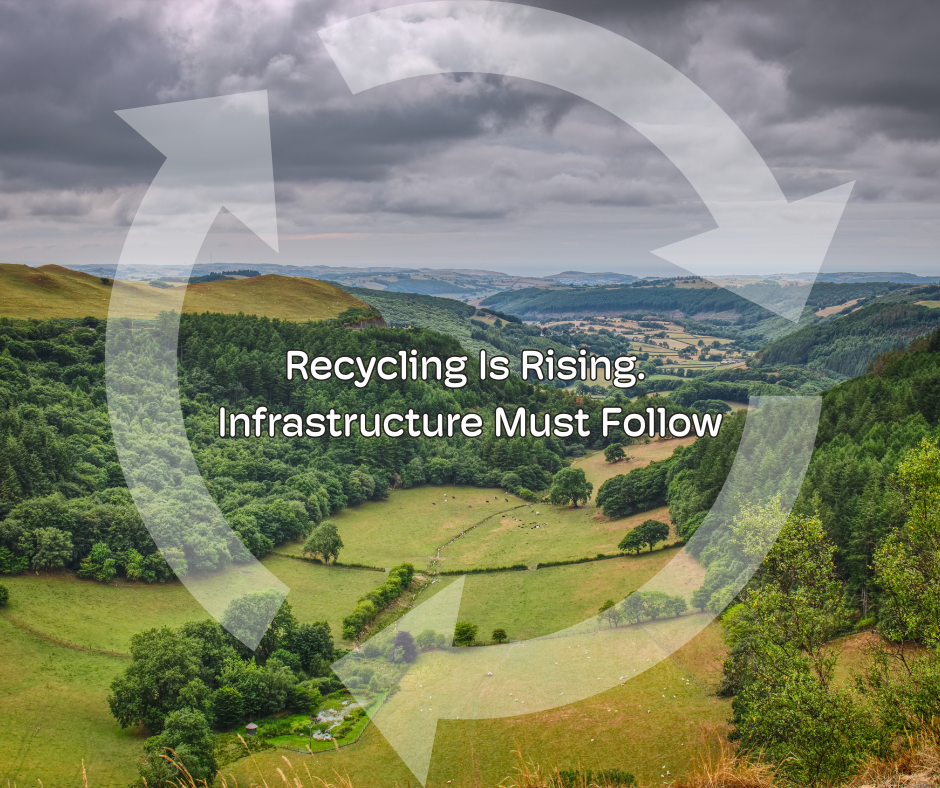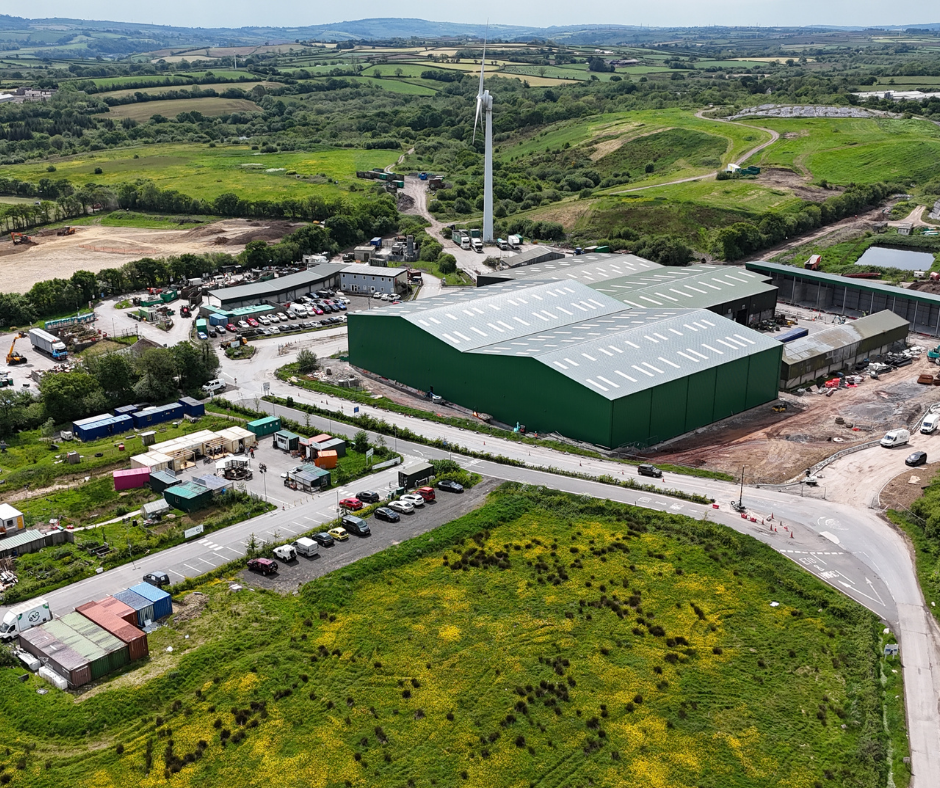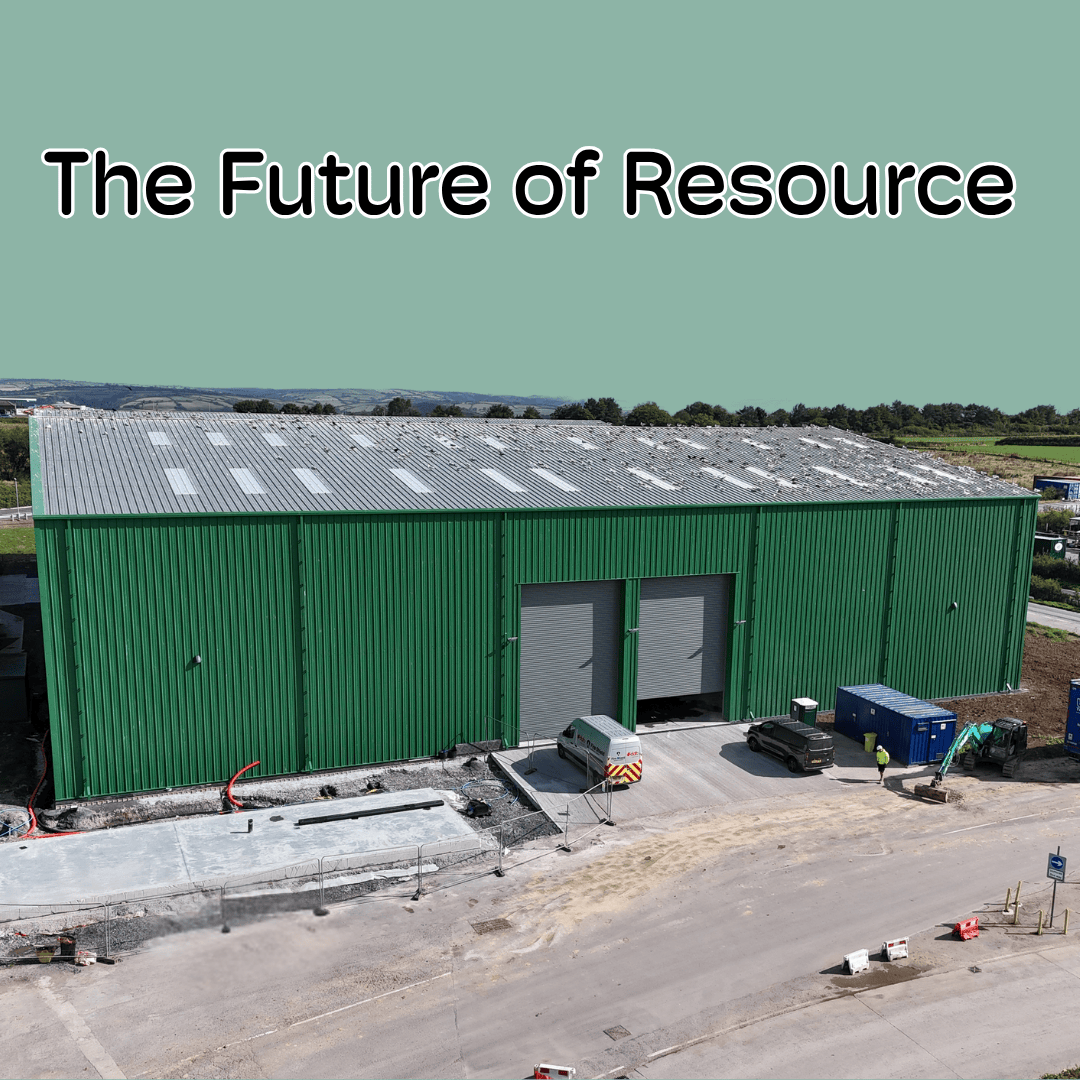At CWM Environmental, we are committed to promoting sustainable practices and embracing the principles of the circular economy. Based in Carmarthenshire, Wales, we are leading the way with innovative initiatives that prioritise resource efficiency and waste reduction.
Our Circular Initiatives
One of our standout projects is Canolfan Eto, our reuse village that opened It’s doors in 2022. Canolfan Eto serves as a hub for promoting reuse and reducing waste by offering a variety of pre-loved goods for sale. We are thrilled to announce the launch of Canolfan Eto online, allowing even more people to access quality reused items at www.canolfaneto.com
In addition to Canolfan Eto, our household waste recycling centres across Carmarthenshire house donation stations where residents can leave their unwanted items. These will enter our reuse facility and begin their journey at our workshops where skilled technicians repair and refurbish the items, giving them a new lease on life and diverting them from landfills.
Merlin’s Magic Compost and Honey
CWM Environmental’s commitment to circularity extends to our organic compost, Merlin’s Magic Compost, which has been transforming green waste into nutrient-rich compost for gardening and agriculture since 2010. We are also proud to produce Merlin’s Magic Honey, harvested sustainably from our own beehives on site, supporting pollinator health and biodiversity. Working with Gwenyn Gruffydd a local beekeeper and business, shows what can be achieved when we collaborate at a local level.
Nantycaws Re-wilding Project

Furthermore, we have spearheaded a re-wilding project at the closed landfill in Nantycaws. This initiative has restored and repurposed the site for ecological and community benefits, showcasing our dedication to closing the loop on waste management. We hope this example can be duplicated across the industry as more and more landfills close every year.
We are just one of the many businesses from across Carmarthenshire that are actively involved in developing the circular economy here in Wales
Fforest Wholefoods: Fforest Wholefoods, located in Carmarthen, is a zero-waste shop offering a wide range of organic and bulk foods, household items, and eco-friendly products. They encourage customers to bring their own containers to reduce packaging waste.
Carmarthen Furniture Revive: This social enterprise based in Carmarthen refurbishes and upcycles donated furniture, giving items a new lease on life and reducing waste. They also offer training and employment opportunities to local community members.
Cylch: Cylch is a community reuse and recycling project based in Carmarthen. They collect unwanted furniture, appliances, and household items, refurbish them if needed, and sell them at affordable prices, promoting reuse and waste reduction within the local community.
Gwalia Gardens: Gwalia Gardens, located in Llanelli, specialises in producing organic vegetables and herbs using sustainable farming practices. They prioritise composting and soil health, closing the loop on organic waste and supporting local food production.
Antur Teifi Furniture: Although not directly in Carmarthenshire (located in Newcastle Emlyn, Ceredigion), Antur Teifi Furniture operates a large furniture recycling and resale project that serves the wider region, including Carmarthenshire. They collect, refurbish, and sell furniture, supporting local communities and reducing waste.
The Circular Economy Explained
What is the circular economy?
In simple terms, the circular economy is a regenerative system where resources are kept in use for as long as possible, with waste and pollution minimised. It aims to design out waste and extractive practices, fostering sustainable production and consumption.
Circular economy initiatives in the UK focus on transforming industries towards circular practices, promoting resource efficiency, and reducing environmental impacts through innovative business models and policies.
What are the principles of Circular Economy?
The three principles of the circular economy are:
1. Design out Waste: Products and systems are designed to minimise waste and maximise resource efficiency.
2. Keep Products and Materials in Use: Emphasises the importance of reuse, repair, and recycling to extend product lifecycles.
3. Regenerate Natural Systems: Prioritises the restoration and regeneration of natural resources and ecosystems.
What is an example of a Circular Economy?
An example of a circular economy is the transformation of waste materials into new products. For instance, a company that collects used plastic bottles recycles them into new plastic pellets and uses these pellets to manufacture new bottles demonstrating circular economy principles. By closing the loop on materials, this process reduces the demand for virgin resources, minimises waste, and contributes to a more sustainable production cycle.
These principles and examples illustrate how the circular economy concept promotes a more efficient and sustainable approach to economic development, benefiting both the environment and society.
By championing these principles and initiatives, CWM Environmental is paving the way towards a more sustainable future in Wales and beyond
Our latest posts
-
-
CWM Environmental Marks a Year of Record Growth, Community Impact, and Circular Innovation
CWM Environmental has concluded 2025 with a series of significant achievements in the circular economy.
-
Nantycaws Resource Recovery Facility Enters Key Phase in Circular Economy Infrastructure Development
The Nantycaws Resource Recycling Facility (RRF) has reached an exciting new phase. The first phase of the build is now complete, marking significant progress in the creation of one of Wales' most advanced pieces of circular economy infrastructure.



